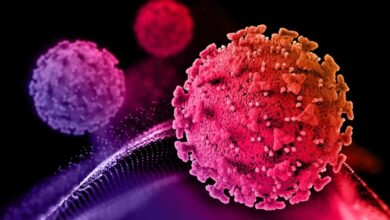Preeclampsia risk is increased in pregnant women with rheumatoid arthritis
An autoimmune condition known as rheumatoid arthritis (RA) often affects women who are fertile. This kind of arthritis is inflammatory. This implies that the RA patient will have joint discomfort and edoema. Although the elbows, wrists, and hands are often affected, patients may present with these kinds of joint issues in almost every joint in the body. Though this is not the cause, people often believe that treating joint discomfort is the sole issue with RA. What we must realise is that, like diabetes or hypothyroidism, RA is a “systemic” illness. Simply put, joint disease is one of the primary signs and symptoms of RA, and managing the condition improves all associated symptoms and problems.

Among the difficulties, one should remember the problems that arise when RA sufferers get pregnant. One intriguing aspect of this illness is that a pregnant woman’s body naturally produces anti-inflammatory hormones throughout her pregnancy. Due to the fact that pregnancy normally suppresses the cells and cytokines (molecules secreted by bodily cells) involved in RA, women with RA often report feeling better during pregnancy. On the other hand, specialist Dr. Sounak Ghosh, Consultant, Department of Rheumatology, CMRI, Kolkata, provides information on additional risks associated with RA in pregnancy. The placenta must operate properly in order to support a healthy pregnancy. The placenta is a barrier that develops in the mother’s womb to link the blood circulation of the growing baby within. This allows the mother’s and the baby’s cells and molecules to communicate and exchange information. The growing foetus will get the nourishment it needs for development in this way.
The mother’s blood contains a variety of antibodies that cause difficulties in the mother’s blood vessels in addition to affecting her joints when she has RA. Thus, we have enough evidence that the maintenance of pregnancy in a patient with RA differs from that of a healthy woman without this illness owing to alterations in the cells and molecules in the placental blood vessels. Numerous meta-analyses of research involving RA pregnant patients have now shown that RA moms are more likely to have preeclampsia, gestational hypertension, or spontaneous abortion.
So how can we lower the chance for RA patients who are considering becoming pregnant? In order to avoid these issues, it is essential that the patient’s disease activity be well controlled before conception, that her blood reports be properly monitored throughout her pregnancy, and that the obstetrician be involved in the foetus’s monitoring. Any nation’s measure of health must take into account the well-being of its mothers and children; therefore, reducing RA inflammation will benefit both parties in the long run. Finally, even though a woman with RA may not always pass on the condition to her offspring, RA is a disease that is heavily influenced by hereditary factors.
Understanding how to manage RA involves understanding what alternatives are available, which medications are safe to use while pregnant, and how to have a rheumatologist evaluate your condition so that you can help an expectant woman with these concerns. Hopefully, these problems can be handled more effectively today than in the past due to improved possibilities for stringent disease control.







